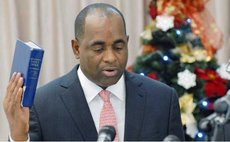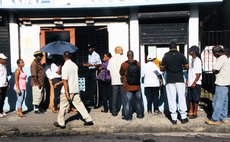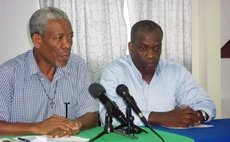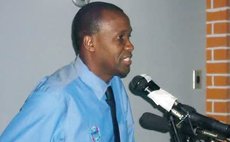Tourism: Half Full or Half Empty
In the eyes of one man there's despair, despondency, depression.
"I'm afraid I do not have a very hopeful view of the tourism sector now."
This is Athie Martin, a hotelier and long-time industry practitioner, who, like many others in the industry, has seen his business go through a very tough time in recent times. He surveys the situation and what he sees is quite ugly.
"I'm afraid that is not a pretty picture…My view is that we are doing worse than we did 25 years ago."
In the eyes of another, hope springs eternal.
"I am optimistic."
This is Gregor Nassief, also a hotelier whose award-winning Secret Bay resort is the darling of the travel trade, and who is the man behind the Fort Young Hotel makeover. His optimism relates to government's policy on tourism which, he believes, isn't clear. But he's hopeful things will change this year.
"There is a policy vacuum, and what the tourism industry needs now more than ever is real commitment evidenced by clear policies that give our industry a competitive edge...I am optimistic this will happen."
In the eyes of the beholder, beauty abounds, there's potential overflowing.
"I feel that there's development."
This is Ian Douglas, the tourism minister, whose responsibility it is to grow and develop the sector here. But is he presiding over a thriving industry, with a clear path to its continued progress, or is tourism tattered and frayed at present?
Last year, Dominica received just over 78 thousand tourists – a 0.2 per cent rise over 2012 but short of the 80,087 who visited here in 2004 or the 84,041 who came in 2006. Its performance in 2013 compared favourably with Antigua (down 1.2 per cent), the Bahamas (down 4.1 per cent) and Barbados (down 5.2 per cent). Still Antigua welcomed 243,932 tourists; 1,363,487 went to the Bahamas and Barbados received 508,520. Grenada, which experienced a 0.8 per cent drop in arrivals during the first nine months of the year, welcomed 89,070 stay-over visitors between January and September – better than Dominica's performance for all of 2013.
In Athie Martin's eyes, this would be risible if it weren't so sad. These numbers, coupled with his experience and observations, have left him fearful for the future of the tourism sector.
"I'm afraid in 2014, honestly, we are so far behind. People don't get it and unless we agree that we have a major reorganization of the mind; I'm afraid I do not have a very hopeful view of the tourism sector now unless there is some very (significant) shift in attitude, in the policy, in programming; I'm afraid that is not a pretty picture."
In Gregor Nassief's eyes, Dominica has done a lot right with the infrastructure, citing improvements to the road network, upgrades to various national sites and attractions, the improvements to Melville Hall and the introduction of night landing, among others, as positives.
"The latter has enabled many more persons to get to the island in a day, which is a huge plus."
But there's a lot lacking, he say, including a clear government policy.
"The fact is that our tax, legal and fiscal framework as it relates to tourism development is uncompetitive," the hotelier tells The Sun in an interview which can be read in its entirety on pages XXX.
But the tourism minister says there's a plan, a Master Plan, which outlines the strategy for growing the industry within the next six years.
"It's a vision for 2020 and details how we go about growing the tourism industry," Douglas explains to The Sun. "Our first order of business is to grow the number of visitors to 90,000 by 2015."
Critical to the success of this plan, the minister explains, are the investments that the government has already made, including night landing, improvements to the water filtrations system, and the construction of the Moroccan-funded hotel at the Cabrits.
That's beauty in the eyes of the beholder, and hope in the eyes of one hotelier. But in the eyes of another, it's less than a binary view of the sector, with the vision gone missing.
Next week, we'll tackle recommendations on fixing the flaws, but for now, there's fear in the eyes of one man.
"I'm afraid as we look towards the end of the tourism season, end of story," says Martin. "Hundreds of bus drivers with (their loans) sitting on it for the next six months wondering what they are going to do with their buses."



